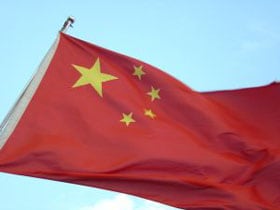
China Prepares to Pounce on Opportunity in Year of the Tiger
When the time comes, China will be ready and “reloaded.” Will the rest of the world be ready too?
The 2008 financial crisis was a business game-changer for the world. In developed markets, especially in the United States, people are still trying to adapt to its aftermath. For many “Generation-Yers,” it was their first experience of economic hardship. As Chinese celebrate the Year of the Tiger, which started Feb. 14, they realize their external business environment also has shifted in a new direction away from their comfort zones.
The purchasing power of China’s overseas customers has declined. The once relatively liberal global trading ground has become bumpier with more national protectionism barriers.
Chinese currency is under even more fierce attack for appreciation. Internal economic growth engines in energy and manufacturing sectors also face the inevitably ever-more-stringent “green” restrictions. Meanwhile, the international expansion of Chinese companies — especially in natural resources sectors — is causing greater uneasiness in the foreign countries affected.
The economic stimulous package the Chinese government launched a year ago, although effectively keeping the country’s economy at an 8.7 percent growth rate amidst the global recession, is feuling a new round of real estate bubbles and raising concerns over the financial exposure of the country’s banking system.
All this reminds me a lesson I learned from Thunderbird Professor Mary Teagarden, Ph.D. When she spoke to a group of Chinese telecommunications executives on the topic of strategy, she mentioned the Chinese word for crisis: The word actually consists of two characters, one meaning “danger” and the other “opportunity.”
So, when we pull ourselves through this danger period, how we can prepare ourselves to reap the opportunities?
China wants to become more than a “world factory.” In the past three decades, the nation has paid too high a price for its labor-intensive, high-resource consuming, high-pollution industrialization. To help the economy move in a new direction, the government is making major investments in research, development and implementation of new energy technologies.
China also wants to become a second “world back-office.” As a knowledge worker in learning and people development in China, I have seen significant investments by government and business alike in preparing young Chinese for a directed migration toward the outsourced services industry.
China’s robust domestic consumption has become a key attraction for businesses and investment from around the globe, which will further help the country optimize its economic structure.
Globalization will not stop, although it probably will move forward under a new framework that we Chinese need to help shape and implement.
When the time comes, China will be ready and “reloaded.” Will the rest of the world be ready too?
[This article has been reproduced with permission from Knowledge Network, the online thought leadership platform for Thunderbird School of Global Management https://thunderbird.asu.edu/knowledge-network/]





